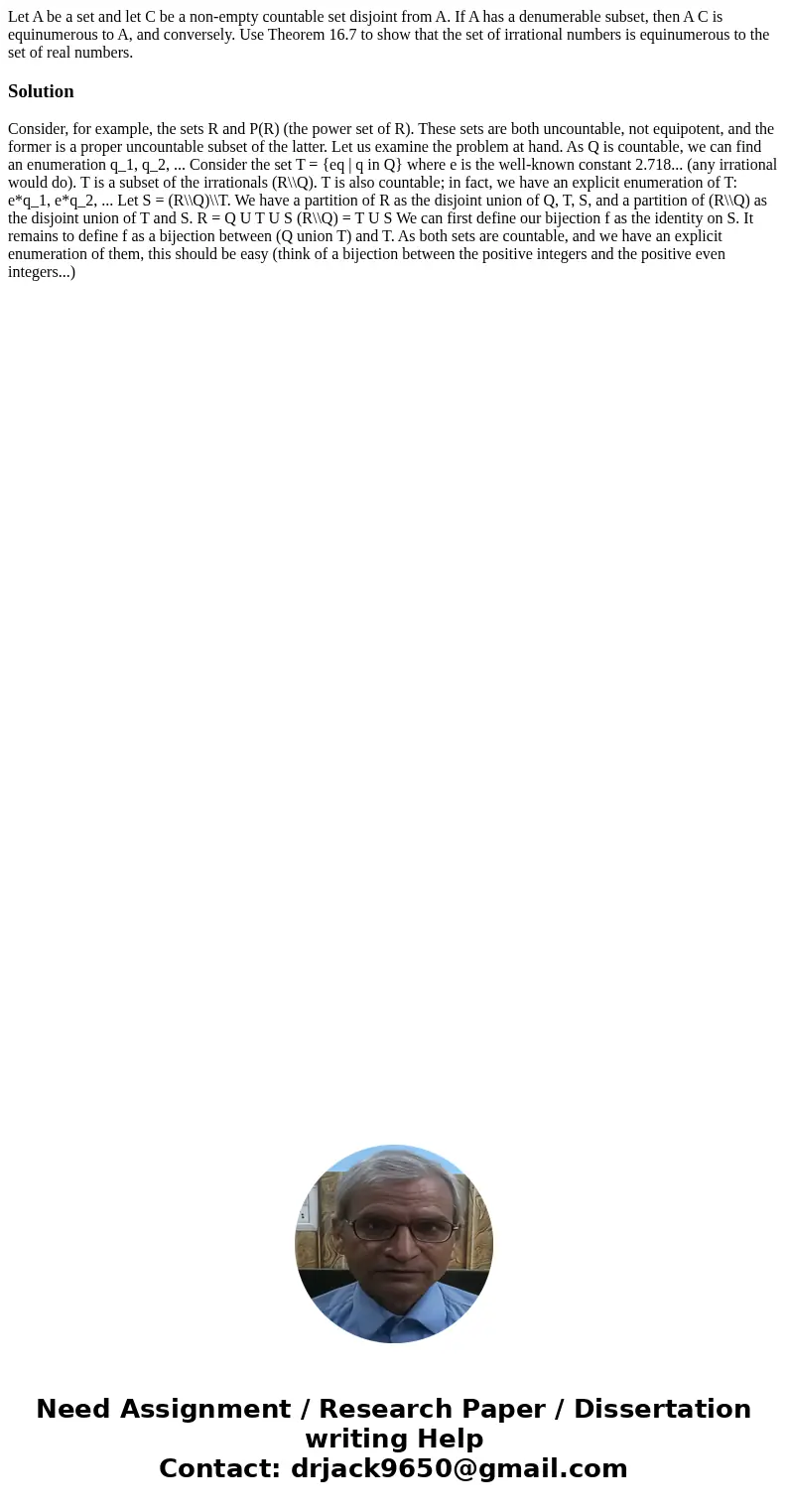Let A be a set and let C be a nonempty countable set disjoin
Let A be a set and let C be a non-empty countable set disjoint from A. If A has a denumerable subset, then A C is equinumerous to A, and conversely. Use Theorem 16.7 to show that the set of irrational numbers is equinumerous to the set of real numbers.
Solution
Consider, for example, the sets R and P(R) (the power set of R). These sets are both uncountable, not equipotent, and the former is a proper uncountable subset of the latter. Let us examine the problem at hand. As Q is countable, we can find an enumeration q_1, q_2, ... Consider the set T = {eq | q in Q} where e is the well-known constant 2.718... (any irrational would do). T is a subset of the irrationals (R\\Q). T is also countable; in fact, we have an explicit enumeration of T: e*q_1, e*q_2, ... Let S = (R\\Q)\\T. We have a partition of R as the disjoint union of Q, T, S, and a partition of (R\\Q) as the disjoint union of T and S. R = Q U T U S (R\\Q) = T U S We can first define our bijection f as the identity on S. It remains to define f as a bijection between (Q union T) and T. As both sets are countable, and we have an explicit enumeration of them, this should be easy (think of a bijection between the positive integers and the positive even integers...)
 Homework Sourse
Homework Sourse